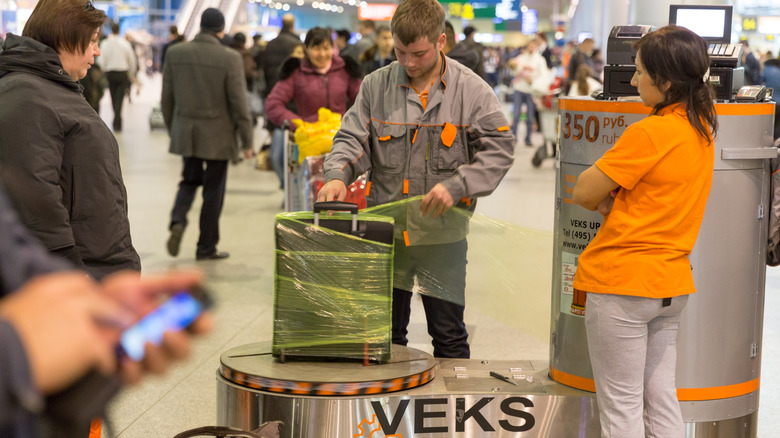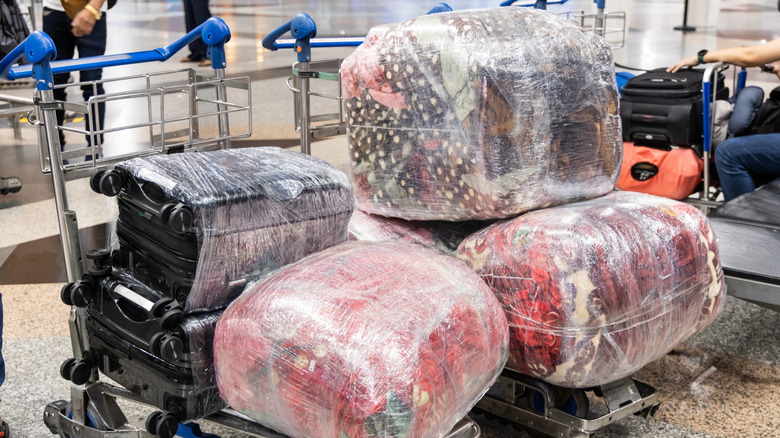Why You See Suitcases Wrapped In Plastic At Airports
We may receive a commission on purchases made from links.
In the departure hall of many major airports, you'll find a clump of travel-ready passengers waiting around a kiosk advertising luggage wrapping services. Here, a machine spins layers of clear plastic over suitcases until they're wrapped up tight like tiny, wheeled cocoons. While some wrap their bags to stop third parties from making them inadvertent smugglers, travelers usually seal up their suitcases for far more pedestrian reasons.
Preventing theft is one of the most common explanations. While layers of plastic likely won't stop a determined thief, they can act as a deterrent — and as a way for the owner to tell if their bag has been tampered with. Statistics regarding theft from inside checked luggage are hard to come by. However, concerns about checked bags are one of the primary reasons passengers lodge complaints, according to a 2018 study from California State University. In addition, anecdotal information also hints at certain airports — such as O.R. Tambo International Airport in Johannesburg, South Africa — as being hot spots for luggage break-ins.
People also choose wrapping services to prevent their suitcases from being exposed to the elements while on the tarmac, or scuffed by overzealous baggage handlers. After all, most travelers have watched a suitcase hurtle onto the baggage belt and thought, "I'm glad that's not mine." A tight layer of plastic can also keep an overstuffed bag, or a suitcase that should really be retired, from spilling open. Finally, some backpackers use plastic wrap to keep straps from being torn off in transit.
Does TSA allow luggage wrapping?
Let's face it: TSA rules are always annoyingly inconsistent. However, there are currently no regulations prohibiting suitcase wrapping. That being said, if your bag is flagged by the Explosive Detection System (EDS), or requires extra physical screening, a few layers of plastic won't stop an inspection. The agents will simply cut it off and continue with their task. And, no: They aren't required to re-wrap the bag. However, certain services, like Secure Wrap, have a relationship with TSA that allows their workers to re-wrap bags after an inspection at no additional cost. In a similar vein, agents will also use master keys to open TSA-compliant locks sold by companies like Travel Sentry and Safe Skies Luggage Locks, or simply cut off non-approved locks when needed.
That said, to avoid needlessly paying for and then having your plastic removed, you're better off purchasing a TSA-approved lock, like this Master Lock padlock, which features a red diamond logo that clearly identifies it as such. Some suitcases today already have built-in locks that make it easier for travelers. If you're unsure if your luggage lock is really TSA-approved, simply look for the same red diamond symbol. As a last line of defense against rough handling, select a reusable suitcase cover made from stretchy fabric or vinyl. This will save you from producing extra plastic waste each time you fly, and it's also a genius luggage trick to prevent theft at the airport.

